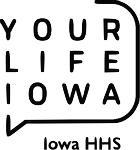 Understanding perinatal depression is important to help find healing and support. Being able to identify what you or a loved one is going through will help you find support and care.
Understanding perinatal depression is important to help find healing and support. Being able to identify what you or a loved one is going through will help you find support and care.
Recognizing perinatal depression is important. It affects both mothers and their children. It is important to identify and support new mothers early on. This reduces the impact of perinatal depression. Treatment options may include counseling, support groups, and medication, if needed.
If you feel you may harm yourself or your baby, you or a loved one should call 988 immediately or reach out to Your Life Iowa at 855-581-8111. It is important to reach out now to find support and information to stay safe.
What is it?
Depression is a medical condition that can occur during pregnancy. It can also occur in the first year after childbirth. Depression causes feelings of sadness and loss of interest in things you like to do. It usually needs treatment to help you get better. If you think you have depression, tell your doctor or midwife. Remember, it is not your fault. It is the most common medical complication of pregnancy. It affects up to one in five women during pregnancy and postpartum.
Symptoms of perinatal depression include:
- Feeling sad, hopeless or overwhelmed
- Feeling anxious, restless or moody
- Loss of interest in things you like to do
- Feelings of guilt
- Difficulty concentrating
- Thinking about death or suicide (killing yourself)
- Excessive concern for the baby
- Change in sleeping patterns
- Change in appetite
- Chronic fatigue
- Withdrawal from friends, family and social activities
- Neglecting responsibilities
WHO IS AT RISK FOR PERINATAL DEPRESSION
Baby Blues
The "blues" usually begin in the first week after birth. They are a result of hormonal changes in the body. These changes can lead to feelings of anxiety, crying and restlessness. It is important to know that these emotions are temporary. As hormone levels stabilize the symptoms usually stop on their own. If the blues last longer than two weeks after delivery or seem to get worse, call your doctor or midwife.
Symptoms of baby blues include:
- Crying, even over little things
- Trouble sleeping or sleeping too much
- Confusion
- Sadness
- Mood swings
- Irritability
Perinatal Depression
This is a type of depression that happens during pregnancy and the postpartum period.
Perinatal depression symptoms1 may include:
- Depressed mood or severe mood swings
- Crying too much
- Difficulty bonding with your baby
- Withdrawing from family and friends
- Loss of appetite or eating much more than usual
- Inability to sleep, call insomnia, or sleeping too much
- Overwhelming tiredness or loss of energy
- Less interest and pleasure in activities you used to enjoy
- Intense irritability and anger
- Hopelessness
- Feelings of worthlessness, shame, guilt or inadequacy
- Restlessness
- Severe anxiety or panic attacks
- Thoughts of harming yourself or your baby
- Recurring thoughts of death or suicide
1Mayo Clinic, Postpartum Depression
Postpartum Psychosis
Postpartum psychosis is a mental health condition. It occurs most often in women with bipolar disorder. It is serious and requires immediate medical attention. Postpartum psychosis is rare. Only one out of every 1,000 women who give birth will develop this condition. The onset is usually sudden.
Symptoms of postpartum psychosis may include:
- Hallucinations are when you see or hear things that are not there. Hearing voices when no one is around
- Delusions or strange beliefs you view things in a different way than what is real.
- Paranoia and suspiciousness
- Feeling very irritated
- Insomnia (can't sleep)
- Hyperactivity (can't sit still)
- Difficulty communicating at times
- Rapid mood swings Thoughts of harming yourself or your baby
- Feel guilt or shame about the disturbing thoughts you are having
- Past history of anxiety or mood disorders (biopolar disorder, depression)
- Family history
- Stressful life events
Treatment Options
Various treatment options can be helpful for PPD. Each option has its unique approach, advantages, and disadvantages. Our YLI counselors can help you find the right one for you.
- Medication Therapy
- Psychotherapy
- Hospitalization
Learn more about treatment options
Lifestyle Changes and Self-Care
- Regular Exercise: Exercise releases hormones that make you feel good and can help in reducing symptoms of depression.
- Healthy Diet: A balanced and nutritious diet can play a crucial role in managing symptoms.
- Adequate Sleep: Sleep problems can be both a symptom and a risk factor for depression. Sleep interruptions often experienced by new moms interfere with deep restorative sleep. This makes it more difficult to deal with stress.
- Support Groups: It is helpful to connect with other moms who have experienced postpartum depression. Postpartum Support International has online support groups. You can join a free group today. Weekly Online Support Groups | Join a Free Group Today
- Meditation/Mindfulness: Mindfulness meditation involves focusing on the present moment. This helps you be more aware of your thoughts, feelings and actions. You focus your attention on the present moment. You can feel more control over your emotion. This can help reduce anxiety, depression, worry and fear.
- Doula: A doula can offer emotional and physical help during pregnancy, childbirth, and after. Doulas work with the rest of the birthing team. They help the birthing person and support their husbands and partners, but they do not replace them. This support can reduce your stress and anxiety.
Alternative Therapies
- Light Therapy: Light therapy can improve your mood. You can do this by taking an early morning walk on a sunny day. Or, sit next to a special light source for at least 30 minutes every morning.
- Acupuncture and Massage Therapy: Can help in reducing stress and anxiety.
Postpartum Doctor/Midwife
Make an appointment with your doctor, midwife or mental health professional. Treatment can help you if you are suffering from depression.
- Social Support: Postpartum Support International has online support groups. You can join a free group today. Weekly Online Support Groups | Join a Free Group Today
- Self Care - Take care of yourself so you can take care of your baby
What other help is available?
- Iowa's Healthy Pregnancy Program (referred to as Maternal Health Programs): This program provides education, resources and support to pregnant and postpartum women. Visit the Iowa HHS Maternal Health website.
- Title X Family Planning Program: Title X Family Planning Program provides comprehensive family planning and preventative health services. The family planning clinics offer reproductive health services and community education. These services include family planning, HPV vaccination, HIV pre-exposure prophylaxis (PrEP). They also provide screening for:]
- Breast and cervical cancer.
- Obesity
- Substance use (alcohol, drugs, smoking)
- Mental health
- Intimate partner violence
- Breastfeeding and Nutrition/Women, Infants and Children (WIC): WIC is a supplemental nutrition program for:
- Babies
- Children under the age of five
- Pregnant women
- Breastfeeding women
- Women who have had a baby in the last 6 months
- Family Support Programs: Family support programs are also known as home visiting programs. Their primary goal is to share information, provide education and champion families.
- Not Feeling Safe in Your Home and Intimate Partner Violence: Questions about safety planning? Contact the Iowa Victim Service Call Center at 1-800-770-1650 or text "IOWAHELP" to 20121. They are dedicated to helping those are hurting. They are here for you and will believe you. They want to restore hope, safety and freedom from violence. It's free, confidential and available 24/7.
- Find a Community Health Centers: Across Iowa there are community health centers ready to assist women. They provide access to medical, dental, behavioral health and eyecare. They provide low-cost services under one roof. Income or insurance status does not matter. They value diversity, inclusiveness and culture. Find a health center near you.
- Find a Childcare Provider Tools
- The Childcare Search Portal can assist parents locate childcare in their area.
- The Childcare Report Tool can help in researching Iowa's regulated childcare providers. This provides access to complaints and annual inspections.
- Iowa Childcare Resource & Referral can help families looking for childcare. They offer free individualized resources. Their specialists provide education and resources for parents on quality childcare. This includes what to look for in selecting a quality program.
- To connect or get more information, visit the Childcare Resource & Referral website. Or connect by:
- Email: childcare@caeiowa.org
- Phone: 855-244-5301
If you feel you may harm yourself or your baby, you or a loved one should call 988 immediately or reach out to Your Life Iowa at 855-581-8111. It is important to reach out now to find support and information to stay safe.
Want to find help on your own?
Your Life Iowa is always here to help you find resources near you. However, we understand that sometimes you’d like to look for help on your own. Our map will let you do just that.
Would you like a mental health care provider to contact you?
Fill out a simple contact form and a professional will reach out to you.
Are you friends or family with someone who needs help for their mental health?
Find out how Your Life Iowa can provide support for them -- and you.
